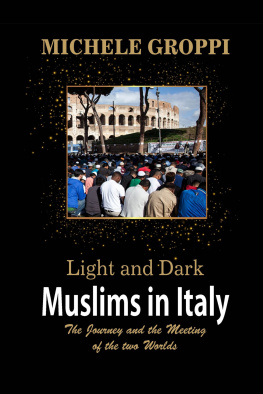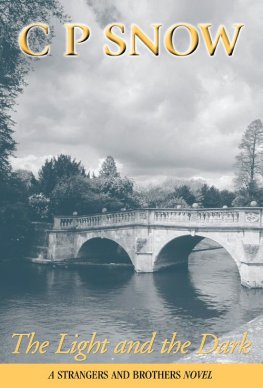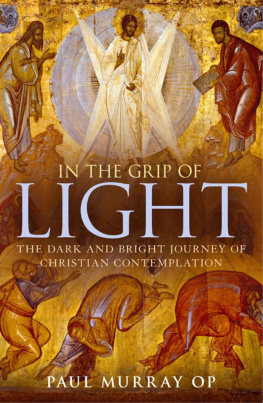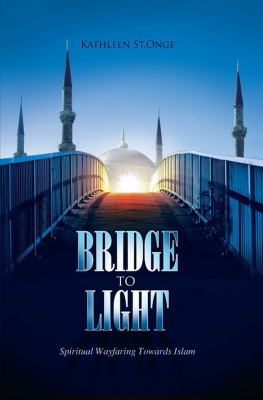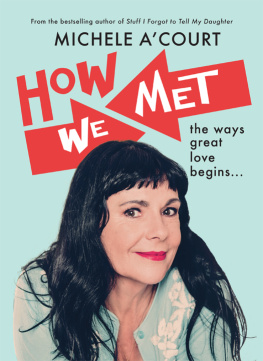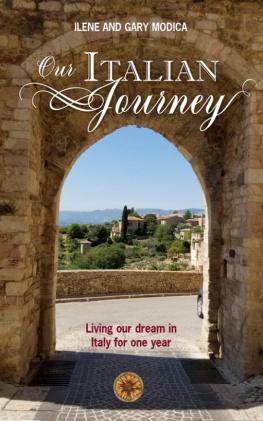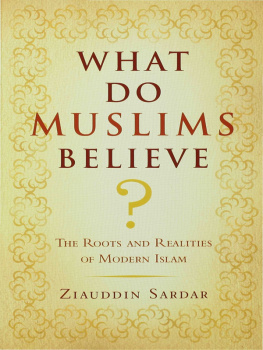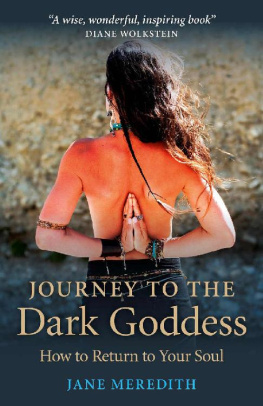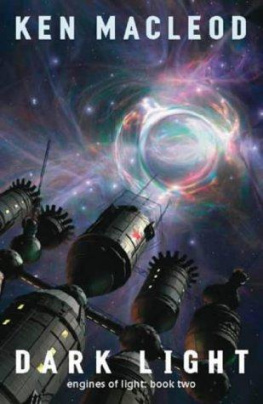Light and Dark: Muslims in Italy
Light and Dark: Muslims in Italy
The journey and the meeting of two
worlds
by
Michele Groppi
Vij Books India Pvt Ltd
New Delhi (India)
Published by
Vij Books India Pvt Ltd
(Publishers, Distributors & Importers)
2/19, Ansari Road
Delhi 110 002
Phones: 91-11-43596460, 91-11-47340674
Mobile: 98110 94883
e-mail:
www.vijbooks.com
Copyright 2020, Author
ISBN: 978-93-89620-22-1 (Paperback)
ISBN: 978-93-89620-23-8 (ebook)
Price in India: 495/-
All rights reserved.
No part of this book may be reproduced, stored in a retrieval system,
transmitted or utilised in any form or by any means, electronic,
mechanical, photocopying, recording or otherwise, without the prior
permission of the copyright owner. Application for such permission
should be addressed to the publisher.
To Marta, Linda, mom and dad
A verse from the Koran teaches Muslims that trust is clearly distinguished from error, while another describes the presence of God as light on light. Another verse illustrates how God guides creatures far from error towards the Light. To the majority of believers and sensitive and intelligent people, including Muslims in history and in the world and in Italy, the interpretation of the meaning of the narration of the sacred text is intuitive and deductive of good and evil; it guides towards the common and superior Good.
Unfortunately, since last century, a subversive propagandistic movement has exploited an apologetic interpretation of some verses of the Koran, making them slogans that would justify a political ideology that claims to legitimise violence, ignorance, injustice, arrogance, barbarism, chaos. This radical and fundamentalist propaganda, which claims to absolutize thoughts and homologate humanity by killing both Westerners and Orientals, civilians and believers, destroying institutional venues, public entertainment spaces, places of cult and burial places, has cast a shadow over public security, peace, and the identity of a traditional civilisation and of various peoples who have been genuinely referring to Abrahamic monotheism for generations: Jews, Christians and Muslims. Such power-fuelled blackmailing!
The abuse and manipulation of the doctrine of a religion is only a mask for a revolutionary guerrilla of independence from the world order. They disguise themselves as Gandhi without having his great soul. Instead, they end up emulating Mao, Stalin or Hitler, killing elders, women and children, monks and teachers, Buddhists, Christians and Jews, as well as many Muslims. And they dare to say that they do it in the name of God and Islam! Shameless.
The cultural and political damage is enormous. Ignorance and superficiality about religion in general increase. With them, the mistrust towards devotees, simple practitioners, precepts and religious rites increases. While we try cloning a moderate, secular, progressive, liberal, reformed Islam, religious freedom rights are denied and walls of prejudice are being built. From Europe to the United States, the tone rises against Jews and Muslims, foreigners and immigrants, reviving visions of protectionism and Defence of the Race! So much dark!
Attempting to shed light and give hope, we are witnessing an increasingly important and interdisciplinary collaboration between sensitive institutional representatives, religious referents open to dialogue and coherent with the context of contemporary Western society, and university researchers capable of producing analysis and articulating readings on updates of perceptions and situations.
This is what the work by Dr. Michele Groppi does, with whom COREIS, the Italian Islamic Religious Community, and other associations of Muslims in Italy, have collaborated to make an inquiry into the perception and the seams of seeming opposing worlds: Italians and foreign citizens, Muslim and Christian believers, democratic and revolutionary politicians, integrated and radical voters, pacifists and terrorists. The good and the bad is often transversal. Perception and reality almost never coincide and, therefore, the results of this study allow us to have an objective picture of the amount of rigorous work that cultural openness warrants. In addition to the method of scientific fidelity and the intellectual honesty that inspires Dr. Groppi, one must recognise his quality to defuse the debate, favouring comparative research at a European and international academic level.
Always committed to building cultural and institutional bridges, we wholeheartedly support this publication and its analysis, because the latter is complementary to the duty religious Muslims in Italy and the world have to interact with representatives of other religious confessions and collaborate with institutions and the academic environment to safeguard civil dialogue and intellectual progress amongst peoples.
We hope that all this will be able to promote the lights of knowledge, respect and dialogue and to build the added value of an Italian Islam within the spiritual heritage of our history and society.
Thanks to Michele Groppi for favouring this encounter!
Yahya Pallavicini Imam,
President of COREIS,
Italian Islamic Religious Community
M ichele Groppi overflows with enthusiasm: equally to when he was playing on the volleyball court, this book also shows his energetic and passionate ability to commit. Words, like volley balls, highlight the desire to get involved by exploring the parquet of knowledge, envisioning strategies to tackle his research on Muslims in Italy.
The subject demonstrates courage, because it combines anxiety over a particular emerging threat seen in recent years, that is, Islamist terrorism, with the tendency to simplistically stereotype the causes of this phenomenon, which facilitate the identification of the culprit in the other, in this case observant Muslims.
The paper takes us on a two-year journey through fifteen Italian cities, where the story of the encounter with hundreds of Muslims is the story line that summarises and explains such convoluted scenarios. Prose is often a mixture of journalism and science, which facilitates the understanding of pivotal points and, above all, avoids increasingly popular narratives that are not supported by data.
If something is needed, in fact, it is a calm and an impartial analysis of the phenomenon of terrorism to understand it in all of its dimensions, aware that the latter will last for a long time, even if it may change actors and organizational forms, being itself integral part of the type of hybrid model of war that the world is facing. And lets not deceive ourselves: Italy is not immune to threats simply because, so far, it has not suffered attacks like other European countries.
Rightly, Groppi, in his final reflections, writes: If not addressed, these potential challenges could promote a future of uncertainty. We could find ourselves with alienated generations of young Muslims residing in the new Italian banlieues, which, given our record of jihadism, could become venues of radicalisation and terrorism. In the book, in fact, a series of vulnerabilities are listed, which, when considered together, explain the basic discomfort that facilitates radicalisation and adherence to a false religion of death, as a response to everyday forms of alienation and deprivation: our task is to grasp these signs of vulnerability, which might be insignificant signs if taken in isolation, but could become dangerous if ignored. We are in a world that requires, for the latter to be governed, more and more knowledge; what a pity that, way too often, on the contrary, we abandon ourselves to the dramaturgical representation of such phenomena, shifting political actions by governments to shamanic rituals of exorcism.


